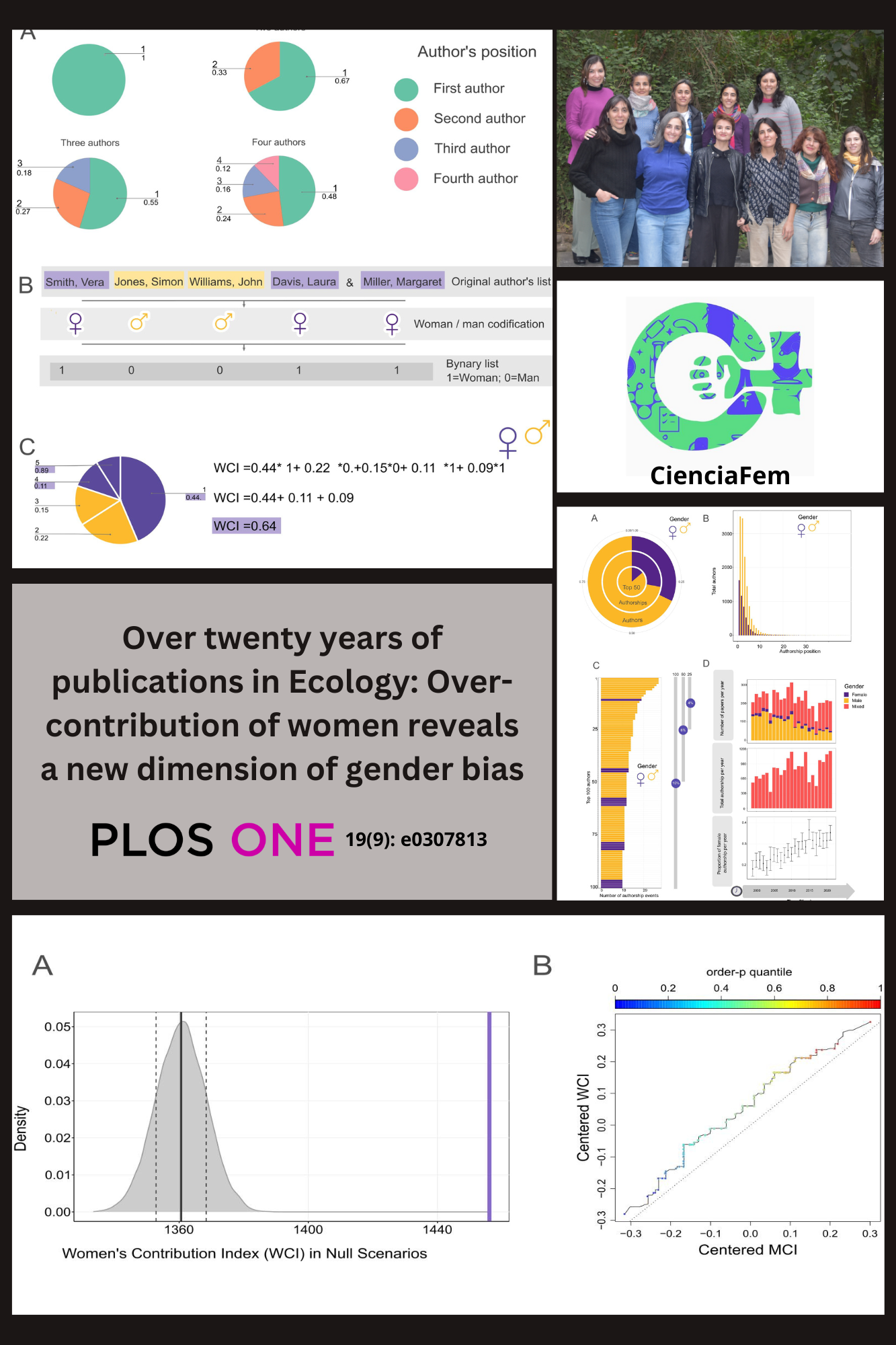There is a broad consensus that the academic career is governed by meritocracy, which implies that achievements, recognition, and advancement depend exclusively on talent and individual effort. However, numerous studies have documented differential barriers for women in science, affecting their productivity, their impact, and the duration of their career. Among STEM (Science, Technology, Engineering, and Mathematics) careers, the discipline of Ecology is among the most competitive for access to permanent positions in scientific institutions, for which the quantity and quality of publications in scientific journals are mainly evaluated. So we ask ourselves: What is the gender composition among the authors of publications in high-impact journals? Do women and men have the same opportunities to publish?
We analyzed 5132 articles from the journal Ecology (one of the most prestigious journals in the field) published between 1999 and 2021. We developed the Women’s Contribution Index (WCI) to weight the individual contributions of authors to a scientific article based on their position within the list of authors and compared the contributions made by female and male authors.
Surprisingly, women contributed more than expected, despite making up only 30% of authors. We found that the contribution of female authors was significantly higher than expected by chance: Women consistently showed higher contributions compared to men, revealing a trend of “over-contribution”.
We also found progress in recent years, with more women authors and mixed-gender papers. Still, the over-contribution pattern suggests deeper systemic issues.
We discuss the process behind the phenomenon of over-contribution in terms of gender bias in drop-out rates and over-compensation in order to persist and advance. The pattern found may indicate pressure on women to outperform to gain equal recognition.
The WCI offers a new way to track gender bias in academia and highlights the need to address unequal expectations placed on women.
Full article in the following link:
